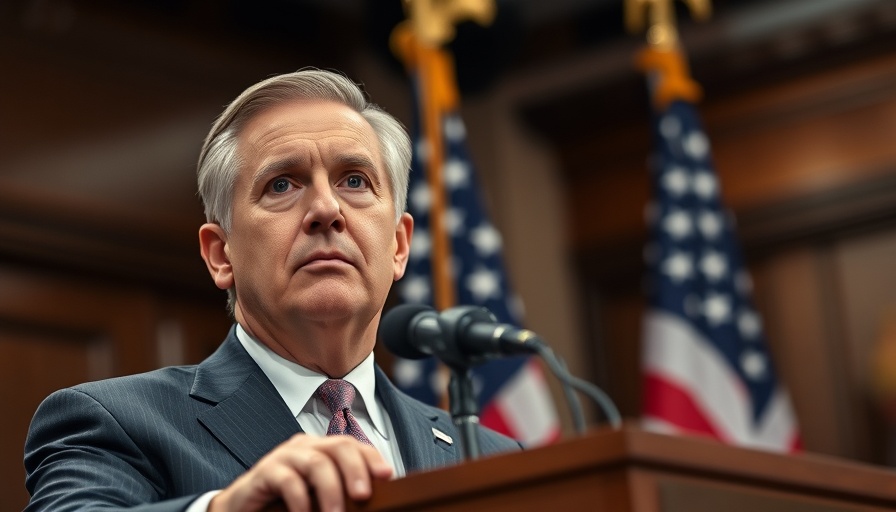
Trump's New Trade Tariffs: A Potential Shift in Strategy
As tensions mount on the economic front, President Donald Trump is expected to announce a compromise regarding his recently imposed tariffs on imports from Canada and Mexico. This statement comes from Commerce Secretary Howard Lutnick, who indicated that a deal may be unveiled as early as Wednesday, potentially softening the newly enforced 25% tariffs. Investors reacted favorably to the news, as U.S. stock futures showed signs of recovery after a challenging week sparked by trade fears.
The Rising Pressure on Consumers and Businesses
These tariffs, back in action after a temporary pause, stem from the Trump administration's strategy to tackle perceived economic threats from its closest neighbors. By slapping these significant duties on Canadian and Mexican goods, the administration aims to address issues like drug trafficking and illegal immigration, now framing tariffs as a viable tool for national security. However, the immediate consequence of these tariffs is felt by everyday consumers and small business owners, who could see prices rise as companies grapple with increased costs on imported goods.
Implications for Taxpayers: A Concerning Trend
For taxpayers, the ramifications of this escalating trade war and the potential changes in tariffs could lead to greater financial strain. Increased prices on everyday goods can diminish buying power and disrupt market stability. As the situation unfolds, savvy taxpayers and business owners should stay informed on strategies to lower my taxes effectively amidst changing economic environments. This means understanding the evolving landscape of deductions and being strategic about small business tax deductions.
How Tariffs Shape Future Economic Planning
With significant tax changes on the horizon, it’s essential for taxpayers to prepare strategically. Proper tax planning could mitigate the effect of inflated prices. Utilizing comprehensive strategies to handle potential deductions could lead to smart financial decisions. Entrepreneurs in both small and medium businesses should take proactive steps, such as reassessing supply chains and pricing structures to maintain financial health.
What’s Next?
The evolving situation demands vigilance from both consumers and businesses alike. Awareness of both current duty rates and those being proposed will empower taxpayers. As negotiations unfold, it remains crucial to analyze their direct bearing on economic stability. The potential compromises announced could redefine trading relationships and thus influence taxpayer obligations down the road.
Engagement with these changes can position individuals and businesses favorably as new policies emerge. As long as we remain informed, we can make calculated, informed decisions about our economic futures and obligations. Whether you are looking for information on tax deductions or exploring savvy strategic tax deductions, continuous adaptation is essential in the face of changing policies.
 Add Row
Add Row  Add
Add 




Write A Comment